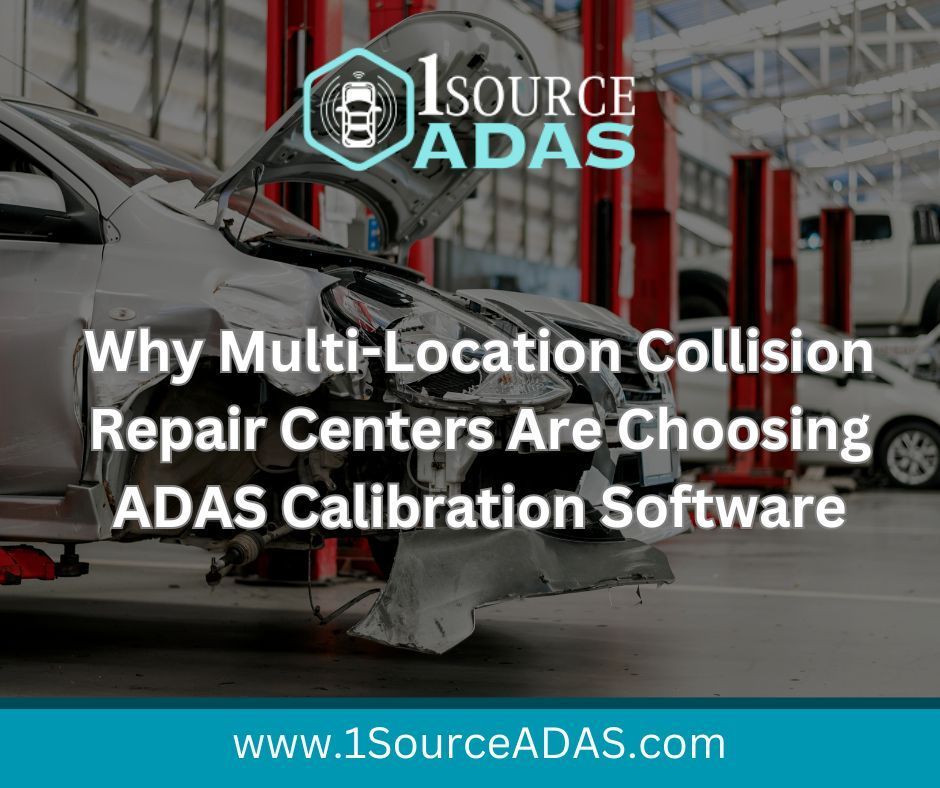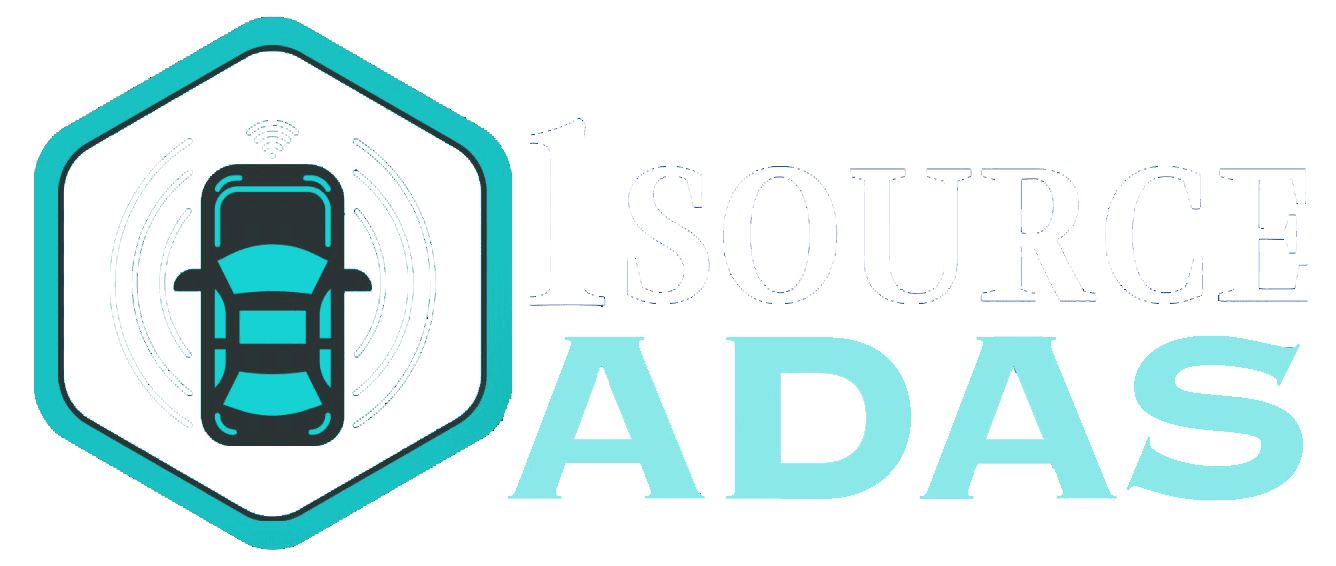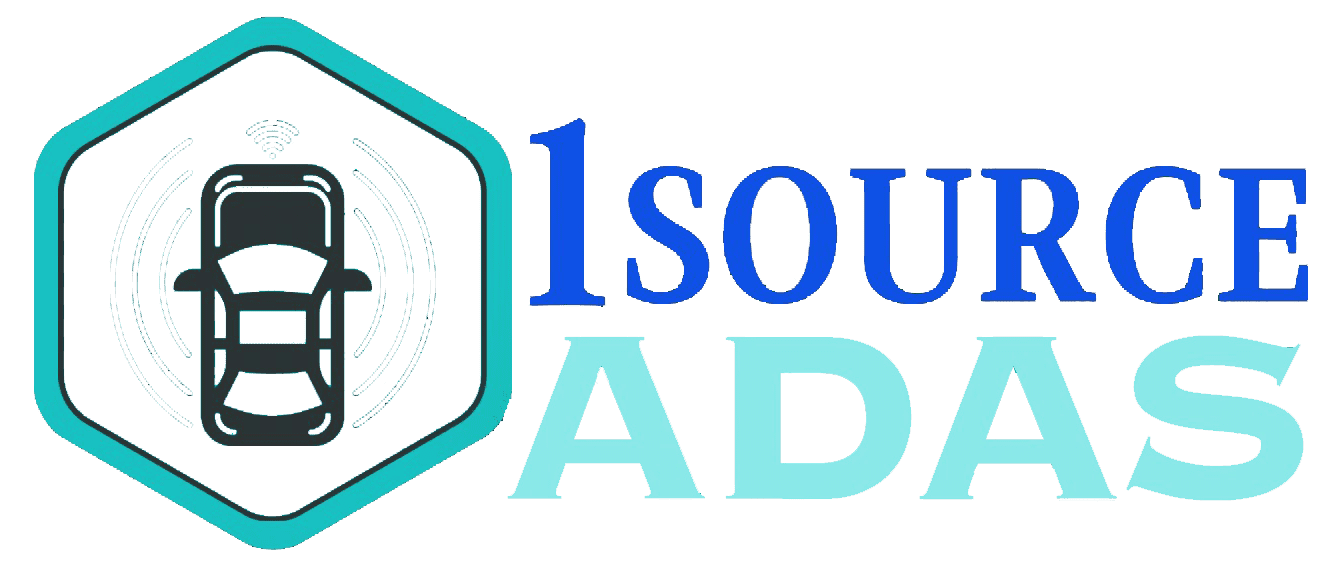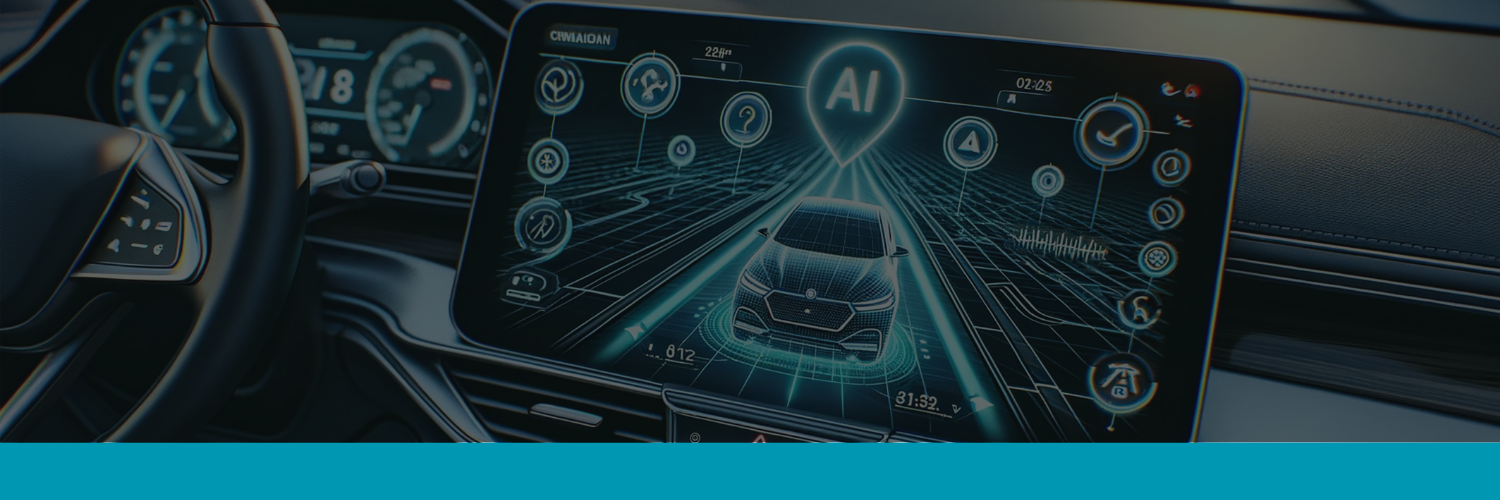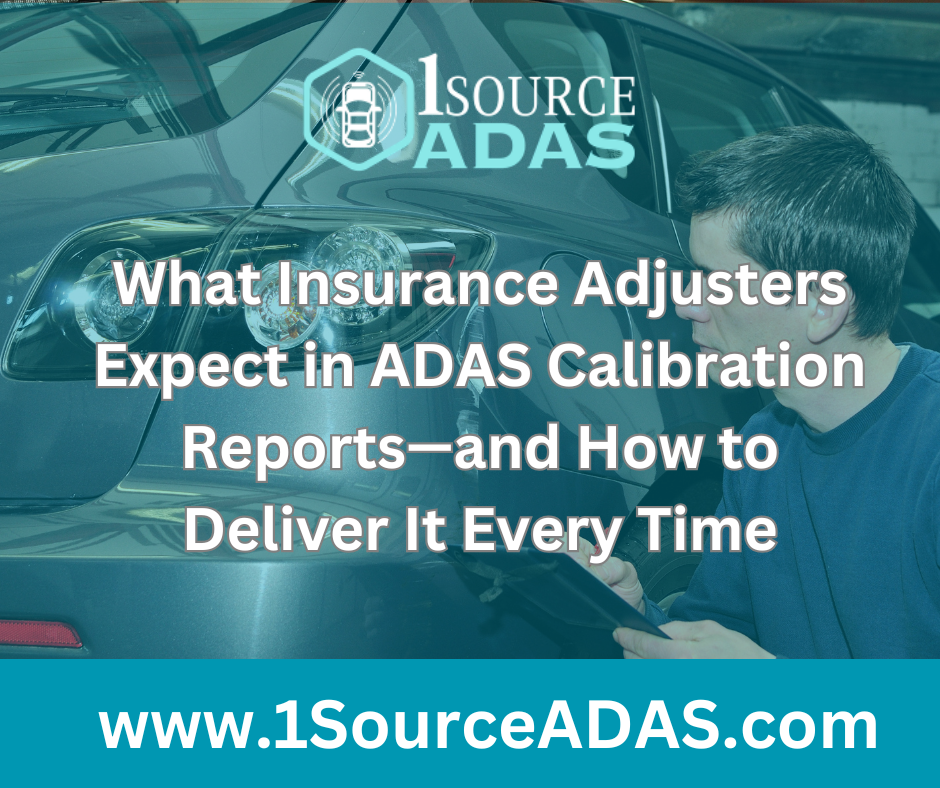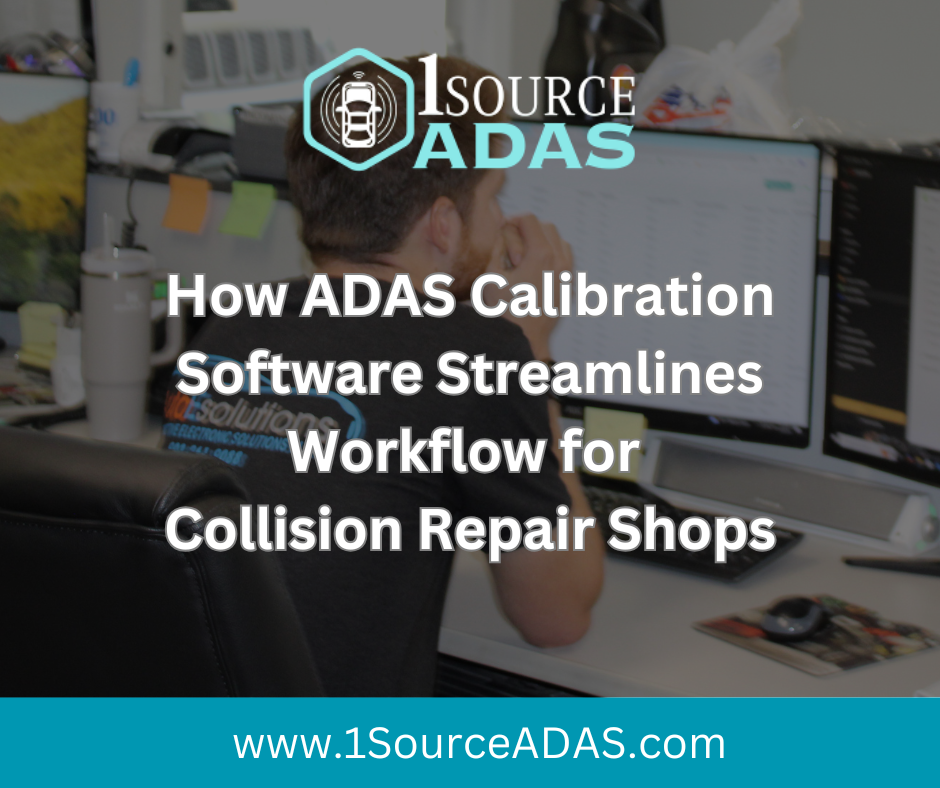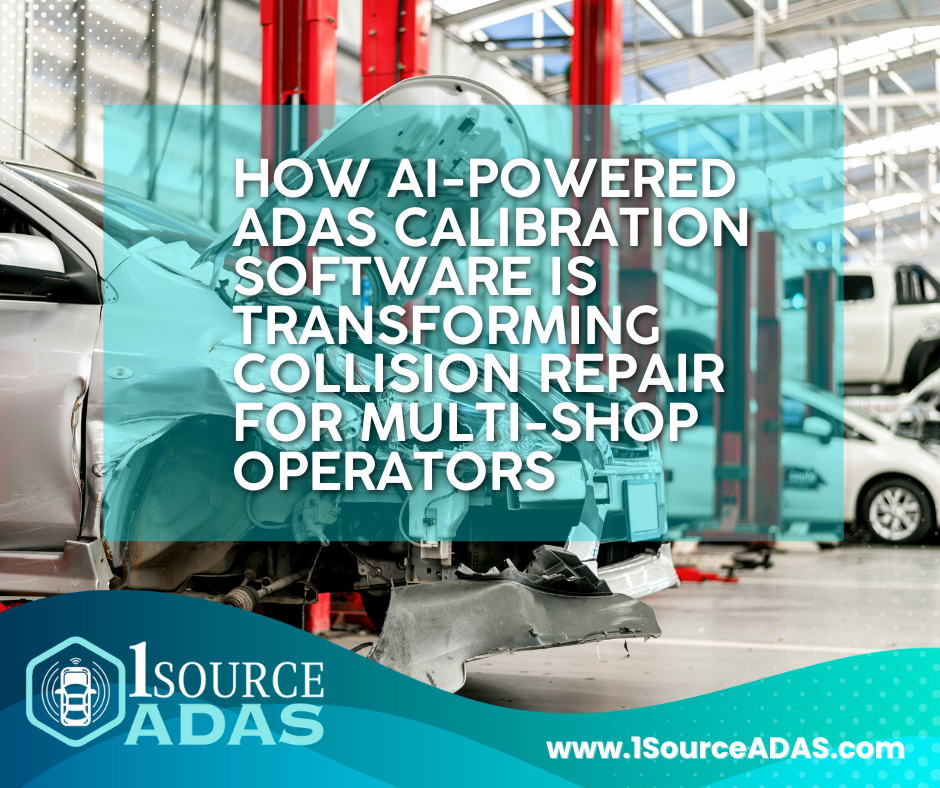Contact@1sourceADAS.com
Deciding whether to bring ADAS (Advanced Driver Assistance Systems) calibrations in-house at your collision center involves several key considerations.
Here’s what to evaluate:
1. Volume & Demand
- How many vehicles needing ADAS calibrations does your shop handle per month?
- Are ADAS-equipped vehicles a significant portion of your workflow?
- Do you frequently outsource calibrations, leading to delays or inefficiencies?
2. Equipment Investment
- Can you justify the cost of purchasing ADAS calibration tools (targets, scan tools, alignment systems, etc.)?
- Do you have space for both static and dynamic calibrations? (Static requires a controlled indoor area, dynamic requires safe open-road testing.)
- Are your techs trained to use calibration systems properly?
3. Training & Expertise
- Do your technicians have the necessary training to perform ADAS calibrations accurately?
- Are your technicians equipped and capable of diagnosing failed calibrations?
- Will you need to invest in continuous training to keep up with evolving ADAS technology?
- Would manufacturer certifications be necessary for your shop’s credibility?
4. Space & Facility Requirements
- Static calibrations require a clean, well-lit, extremely level space (often 30x50 feet or more).
- Dynamic calibrations need open roadways with proper conditions (clear lane markings, minimal traffic).
- Can your shop accommodate both?
5. Liability & Compliance
- ADAS calibrations must be 100% precise. Are you prepared for the liability if something goes wrong? A properly trained and equipped sublet partner might mitigate some of that liability.
- Do you have the right documentation process for calibrations to meet industry and OEM standards?
- Will you pursue OEM certifications for added credibility and warranty compliance?
6. Cost vs. ROI
- What is the current cost of outsourcing ADAS calibrations?
- Would bringing it in-house reduce cycle time, improve profitability, and enhance customer satisfaction?
- How long would it take to break even on the equipment investment?
7. Insurance & Compliance Considerations
- Will insurance companies recognize and reimburse your in-house calibrations?
- Are you prepared to start another business to run ADAS through for proper reimbursement from the insurance companies?
- Are you prepared for potential audits or legal implications of incorrect calibrations?
Final Thought:
If ADAS calibrations are frequent, and outsourcing delays are hurting efficiency, bringing them in-house can be a smart move. However, if the volume is low or space is limited, outsourcing may still be the better choice.

